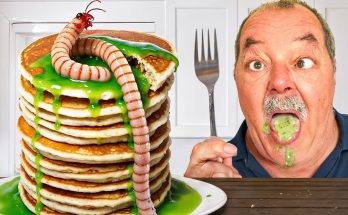
Pumpkins and Beer

Is pumpkin good for dogs?
Yes! Pumpkin is actually great for dogs. Just to be clear, we are talking about plain pumpkin without all the “spice” that can be added to it. Pumpkin has some serious health benefits for dogs, especially for their digestive tract. Adding pumpkin to your dog’s diet can soothe and regulate the stomach and intestines and provide relief from both diarrhea and constipation.
Pumpkin is rich in fiber and contains many important vitamins and minerals. Plain, canned pumpkin is the healthiest choice for your dog. It is readily available at grocery stores all year long. Both fresh and canned pumpkin are good sources of nutrients and fiber, but canned pumpkin contains a higher concentration of fiber and nutrients. This is because fresh pumpkin has a higher water content than canned pumpkin.
Be careful not to buy the canned pumpkin with the added pie spices. These can be irritating to your dog’s stomach. Some canned pumpkin-pie mixes contain xylitol as a sweetener, which is toxic to dogs. If you can’t find plain canned pumpkin, pumpkin powder is made for pets and is a good alternative.
What are the health benefits of feeding pumpkin to my dog?
Pumpkin can ease digestion in several ways. The dissolvable fiber content in pumpkin adds bulk to your dog’s stool by absorbing water. As the fiber is digested, fiber fermentation produces beneficial fatty acids that supply energy to cells, stimulates intestinal sodium and water absorption, and lowers the pH level of the large intestines.
Fiber also acts as a prebiotic. Prebiotics are different from probiotics. They stimulate the growth of beneficial bacteria in the intestines and inhibit the growth of harmful bacteria. Fiber does this by lowering the pH level and providing the necessary nutrients these bacteria require.
For some cases of chronic diarrhea, your veterinarian may also recommend adding a probiotic. This is a supplement containing live beneficial bacteria to maintain healthy intestinal flora. Pumpkin acts as a prebiotic booster for these probiotics.
Pumpkin is rich in vitamin A, which is crucial for brain and eye development. When combined with vitamin C, E and other antioxidants in pumpkin, dogs get excellent support for their immune system.
Vitamin E, potassium and beta carotene are also present in pumpkin. Vitamin E is an important antioxidant that keeps away free radicals that can trigger abnormal cell growth. It also keeps the internal organs healthy and is good for the heart muscle. Potassium is important to keep your dog’s muscles healthy. Beta carotenes do the same for your dog’s eyes and skin.
Pumpkin can help with weight control because it is high in fiber and low in calories.

How much pumpkin should I feed my dog?
If you are adding pumpkin to your dog’s diet to treat diarrhea or constipation, start with one to four tablespoons added to their regular meal. It is best to start with a smaller amount and gradually increase to larger amounts. This way you can make sure your dog does not have a negative reaction.
Be sure your dog drinks plenty of water to prevent dehydration when adding pumpkin or any other fiber-rich ingredients to their diet. Go by weight when deciding how much to add. Small dogs can have a teaspoon per day, while big dogs can handle a tablespoon or more.
Pumpkin is a good source of vitamin A, but too much vitamin A can be toxic to dogs. When in doubt, be cautious and add a little less.
Are all parts of the pumpkin safe for my dog to eat?
Not all parts of the pumpkin are safe to feed to your dog. The pumpkin pulp, which is the stringy goop in the center, should be avoided. The stems and the skin are hard for your dog to digest. Feeding these may cause stomach upset, which is usually what you are trying to relieve by feeding pumpkin.
Don’t feed old jack o’lanterns to your dog. Carved pumpkins, especially ones that have been sitting outside for a while, can breed mold and bacteria. Consuming these can make your dog very sick.
What about pumpkin seeds? Can my dog eat those?
Pumpkin seeds contain oils that are good for your dog’s urinary tract and may help with incontinence. The seeds are full of omega 3 fatty acids, which have anti-inflammatory properties.
Feeding your dog raw pumpkin seeds can be dangerous, as these seeds spoil quickly. The seeds should be cleaned and roasted in the oven at 350 degrees Fahrenheit for about an hour to improve their taste and increase their shelf life.
Pumpkin has many good properties, but if you aren’t sure whether it will be safe for your dog to eat or if your dog is having digestive problems that pumpkin is not fixing, make an appointment with your veterinarian.
Can dogs drink beer?
Actually, no. Although they like the taste and the smell of it, beer can be toxic to dogs. Even a slurp out of your glass or licking up spilled beer off the floor can make them sick. Ethanol, or grain alcohol, is produced during the fermentation process to make beer. It takes very little alcohol to induce alcohol poisoning in dogs.
One of the first signs that your dog has alcohol poisoning is vomiting. If your dog just vomits once, and shows no other symptoms, he will probably be fine. However, if he vomits multiple times and shows other symptoms, you need to take the dog to a veterinarian immediately.
Just like people who have drunk too much, if your dog has ingested alcohol, he may be restless and disoriented. He may seem confused and show a loss of coordination that can range from just being wobbly to being unable to walk at all.
Panting and drooling are also indications that the alcohol poisoning is worsening. You should take your dog to the emergency vet if you notice these symptoms.
If your dog has consumed a large amount of alcohol, he may develop muscle tremors and seizures. Intoxication on this level, if not treated promptly, can progress to coma and even death. Never assume your dog will “just sleep it off.”
At the veterinary hospital, your dog will be rehydrated with intravenous electrolyte fluids, have his body temperature and blood sugar regulated, and be treated for nausea, as well as other supportive care.
How can I prevent my dog from drinking beer?
Now that you know that dogs should not drink beer, here are some tips to prevent them from consuming alcohol.
Keep your alcohol stored carefully away from your dog in the refrigerator or on a shelf high enough that he can’t reach it. When you are drinking, do not leave your bottle or glass unattended when you leave the room and make sure to clean up any spilled beverages.
Be sure you pay attention to your dog when you have guests over. If you are planning a party that will involve alcoholic beverages, you may want to keep the dog crated or in a room away from the beer.
There is a safe, alcohol-free product called Dog Brew by Busch that you can give to your dog if you just can’t drink alone. Dog Brew by Busch is an all-natural, alcohol-free product. It is a pork-bone broth made with vegetables, herbs, spices and water. You can pour the can into a bowl or pour the broth over food. It can be served cold or at room temperature. They say it’s delicious!





